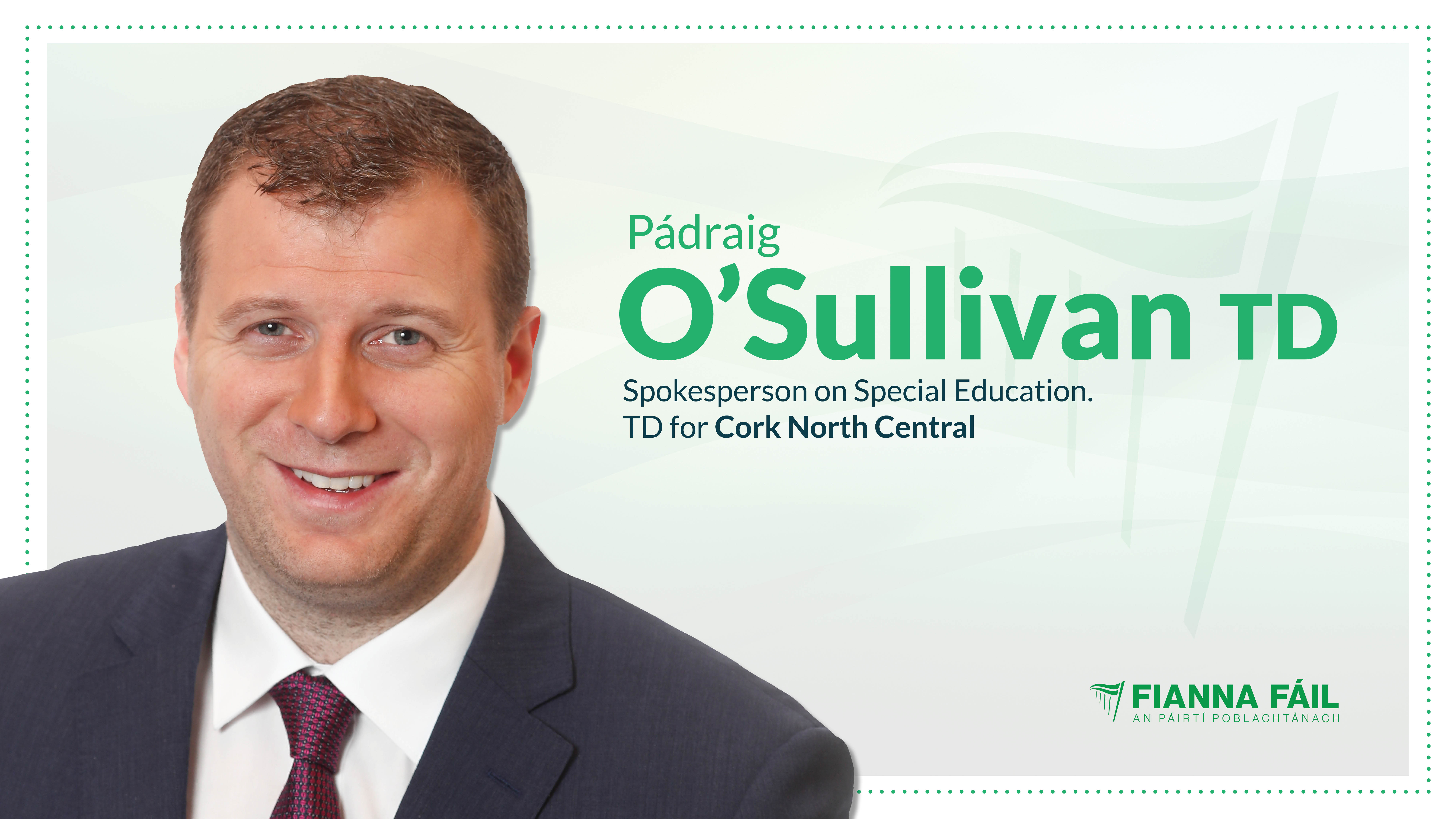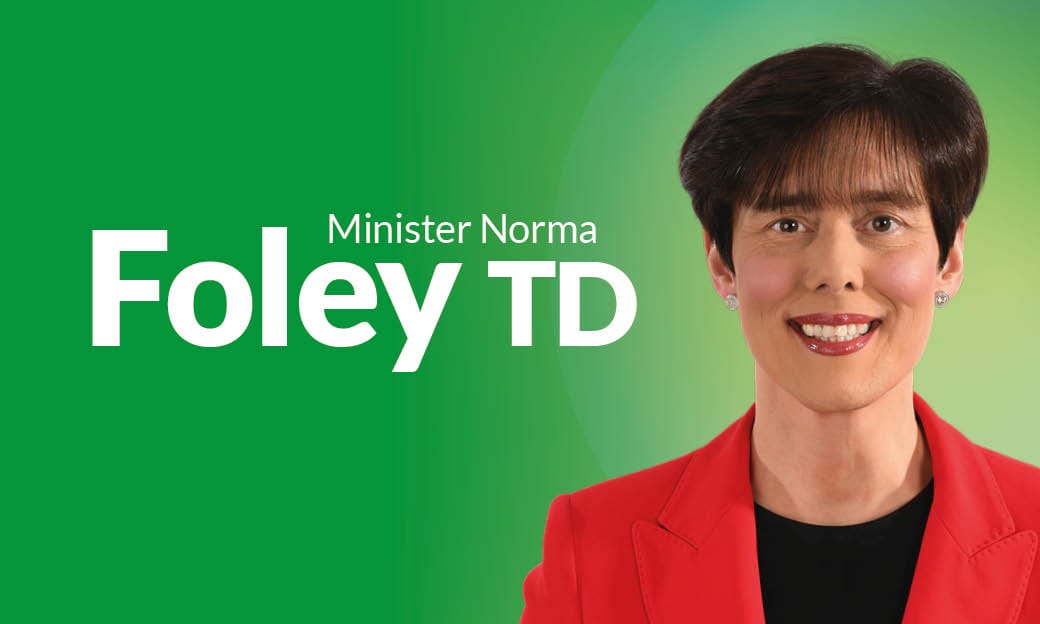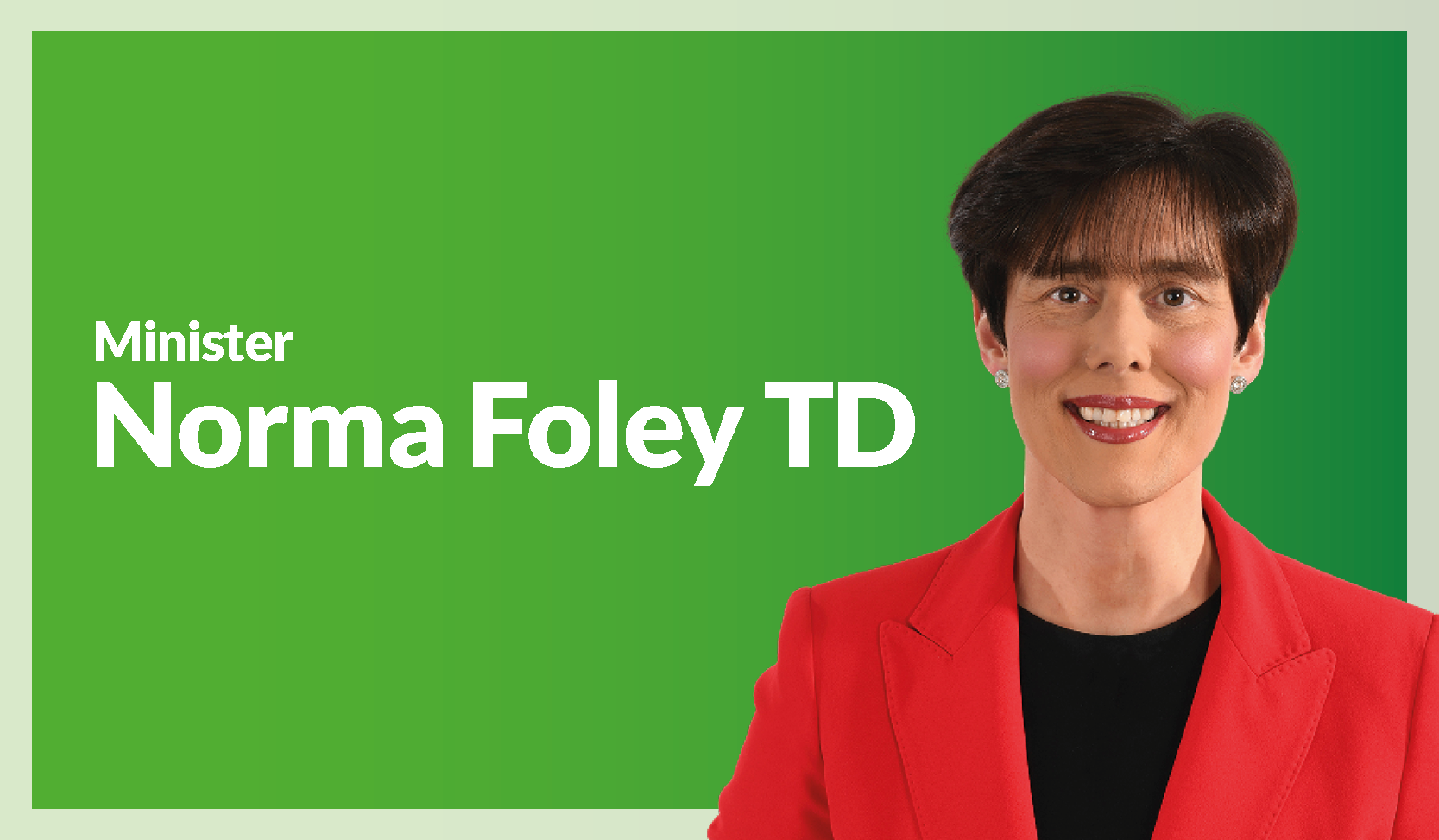Speech by Minister Norma Foley, Fianna Fáil Ard Fheis, September 30th 2022
Published on: 01 October 2022
A dhaoine uaisle go léir is onóir mhor domsa mar Aire Oideachais bheith anseo ar an ocáid iontach, specialta seo do mhuintir Fhianna Fáil.
Chair, delegates, distinguished guests, ladies and gentlemen, it is indeed a great Honour for me as Fianna Fáil Minister for Education to join you all here this evening for our 80th Ard Fheis.
How wonderful too it is to be here together in person. The virtual world has served us well, particularly so in Covid times, but it will never replace either the benefit or sheer beauty and energy of in-person engagement. Thank you to each one of you for being here. A particular word of gratitude to the panellists joining Minister Niall Collins and myself on stage. Thank you to Paudi, Malcolm and Fiona who are superb education spokespersons and advocates in the Oireachtas. Niall and I are hugely appreciative of your work, commitment and support in all areas of education.
Heartfelt thanks to John Kiely, the very successful and impressive manager of the Limerick Hurling Team and the equally successful and impressive principal of the Abbey School, Tipperary. I am very pleased to have you as our guest John and look forward to you sharing your experiences and thoughts on education and most particularly your views on Senior Cycle Reform.
It is said that a week is a long time in politics, it is equally so in education. But, truth be told, this past week has been a hugely successful and positive one for Irish education. Tuesday’s budget announces the single largest investment ever in education, committing over €10 billion to support our students, parents and school staff. I am especially pleased that from next September, every primary school pupil in this country will receive free schoolbooks.
Other parties may have mumbled and muttered about doing this for a long time but sat on their hands, so ultimately it took Fianna Fáil vision, commitment and conviction to deliver free schoolbooks to every single primary school pupil across the country. At its core, the Fianna Fáil party has always been about equality of access and opportunity. It is about making sure that everyone has a seat at the table, and not just a privileged few.
We fervently believe that no child should ever be disadvantaged by virtue of where they come from, who their parents are, or indeed for who they are themselves. That is the core reason why our party introduced free second-level education in 1966 and that is why we are now introducing a free Schoolbooks Scheme. In Budget 2023, over €50 million is being made available to provide for free primary schoolbooks, funding that will reach into every community in Ireland.
This budget has also, successfully, reduced the primary Pupil Teacher Ratio. Over the past three budgets, Fianna Fáil in government has delivered an unprecedented 3 point reduction in the Pupil Teacher Ratio, bringing it to an historic low of 23:1. As an educator, I know how valuable smaller class sizes are, and I am delighted to be able to ensure that our children will be able to receive the individualised care and attention which they need. We are fortunate in Ireland to have some of the best and brightest working in our classrooms, and this will further enable them to do their jobs in educating the minds of tomorrow.
I am also pleased to confirm that we will invest more than €5 million in piloting a programme of counselling supports for primary school students. This will serve to support the very positive work which already takes place in the area of wellbeing in our schools.
The Jewish poet Amichai tells us that the windows of a classroom should always open to the future. I fundamentally believe that to be true.
As Fianna Fáil Minister for Education I passionately believe in driving forward and delivering on Senior Cycle Reform. Earlier this year I announced a significant package of reforms to the Leaving Certificate., and Budget 2023 makes funding available to progress our programme. Since its establishment in 1925, through wars and global pandemics, the Leaving Certificate has been administered each year to Irish students. As a country, it has stood us well as the capstone of our second-level education system. But it has also remained relatively unchanged since its establishment in 1925. At the time when the Leaving Certificate was established, Ireland and indeed the world looked very differently than they do now.
At the time, only a minority of Irish students could expect to progress to school completion and onto further and higher education. Many of the fields which drive our economy today, such as data science, computer engineering, and life sciences were not established. Even in areas that were more established, technological and other advances have rendered them unrecognisable. When I visit schools and talk to our young people about their interests, ambitions, and dreams, I am so impressed by the diversity of their talents and wishes. I meet students who perhaps may not enjoy traditional subjects but who excel in building computer programmes; students who are gifted with their hands; and students who love nothing more than working on the family farm or in the family business. Our current Senior Cycle does not offer sufficient opportunity for these young people to develop their skills in these areas and to be recognised nor indeed does it offer sufficient opportunity for their particular skills to be recognised and applauded.
We have always been a party where people from all different walks of life and from different backgrounds have come together to drive forward for the good of our community and our country.
We know that if we don’t make the right decisions for our education system, drive change forward and prepare our young people properly for the dynamic future they face, we will be left behind as a nation and economy. As Minister for Education I have worked closely with the National Council for Curriculum and Assessment and officials of the Department of Education to develop a programme of Senior Cycle Reform.
I am determined to lead a set of reforms to ensure we have an education system fit for purpose for generations to come. An education system that puts at its centre the talents, abilities and capabilities of our students.
My agenda for Senior Cycle redevelopment is ambitious, optimistic and inclusive.
My vision for Senior Cycle is that we:
- Empower students to meet the challenges of the 21st Century
- Enrich the student experience and skillset we have in our current system
- Embed wellbeing and reduce stress levels for our students
Senior Cycle redevelopment must ensure that the diversity of students’ learning needs and strengths are addressed.
We must ensure that all learning pathways in school are accessible and equally valued.
We have to broaden the ways used to assess and accredit students’ achievement, to better reflect and encourage the learning we wish to promote.
And finally, we must ensure that students and their wellbeing are at the forefront of everything we do.
We need to support every student in accessing the opportunities and pathways. The NCCA Council is to begin work immediately with schools to work towards developing a Level 1 and Level 2 Learning Programme to build on the equivalent Junior Cycle programmes for students with special educational needs.
Furthermore, I want all students in all schools to have the option of taking the TY programme. To support this, the National Council for Curriculum and Assessment will make available a revised Transition Year programme statement from 2024 to guide schools in providing an updated TY experience for students.
We also need a more integrated Senior Cycle experience for students.
The NCCA Report acknowledges that the Leaving Certificate Established, the Leaving Cert Applied and the Vocational Programme have considerable strengths within each programme. However, it is clear that the rigidly separated programmes erect barriers for students.
The Senior Cycle experience should be more flexible, so that the different types and styles of learning within each of the programmes should be available to all students. And programmes should not unnecessarily exclude learners from progressing to further learning opportunities. Ultimately, Senior Cycle Reform will allow us to evolve a Framework for Senior Cycle that has student needs and strengths, and not programme rigidities at its heart.
I have also provided for the creation of two brand new subjects – Drama, Film and Theatre Studies; and Climate Action and Sustainable Development, to be ready for students in network schools starting fifth year in 2024.Over time, we have evolved assessment at Senior Cycle quite considerably. That said, traditional written examinations taken in the month of June remain a defining feature of the Leaving Certificate examination experience. And let me be clear: examinations have their strengths. They enable us to assess a considerable range of student learning in a manageable way that is trusted by students, teachers, parents and the general public.
The Leaving Certificate examination also challenges students to complete programmes of study, deepen their learning and be persistent in their efforts.
However, I am convinced that we need to get a better balance in the range of ways we assess students’ learning. That’s why I am asking that all Leaving Certificate subjects will have assessment components additional to the conventional written examination. These components will also allow for a greater range of students’ skills and competences to be assessed, as well as spreading the assessment load for students.
Additional components will be worth 40% of the total marks; this will be an externally moderated, teacher-based form of assessment. This will be designed on a subject-by-subject basis and will seek to develop students’ capabilities across a wide array of skills, such as oral presentation, practical work, teamwork, and problem solving.
We have to be prepared – all of us – to face the future for the generations coming behind us to live fulfilled lives in what will be their world – we are only the guardians of the present but our students are our future.
As a Minister for Education, I humbly stand on the shoulders of my Fianna Fáil predecessors in Education continuing the Fianna Fáil vision and ambition to deliver radical, progressive and inclusive student-centred education.
We in Fianna Fáil understand education.
We in Fianna Fáil value education.
And always we in Fianna Fáil deliver in education.
Go raibh mile maith agaibh.


